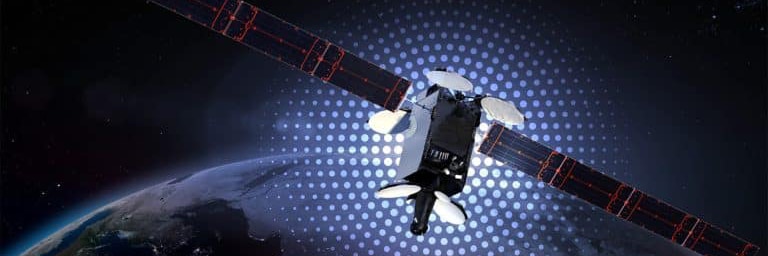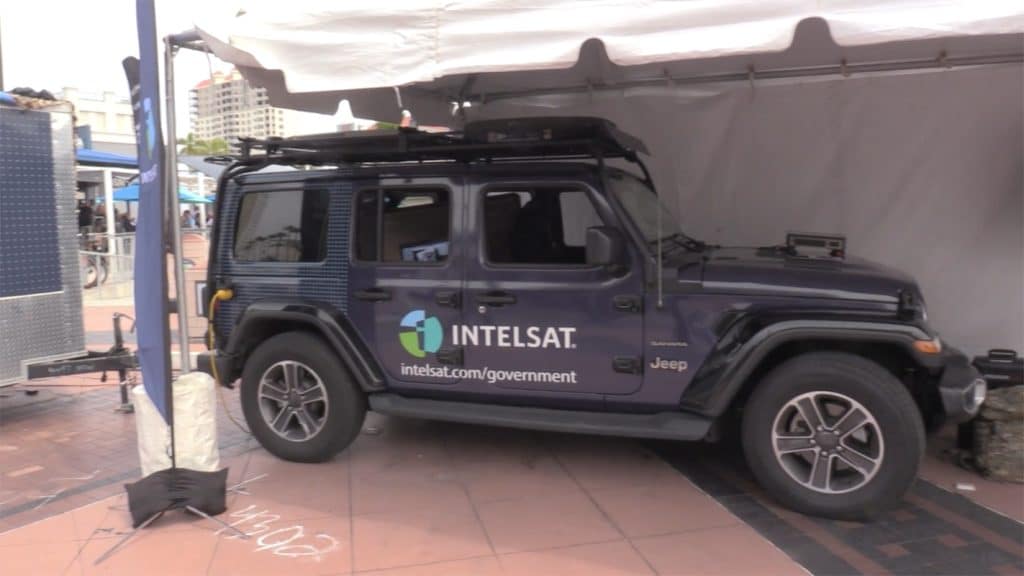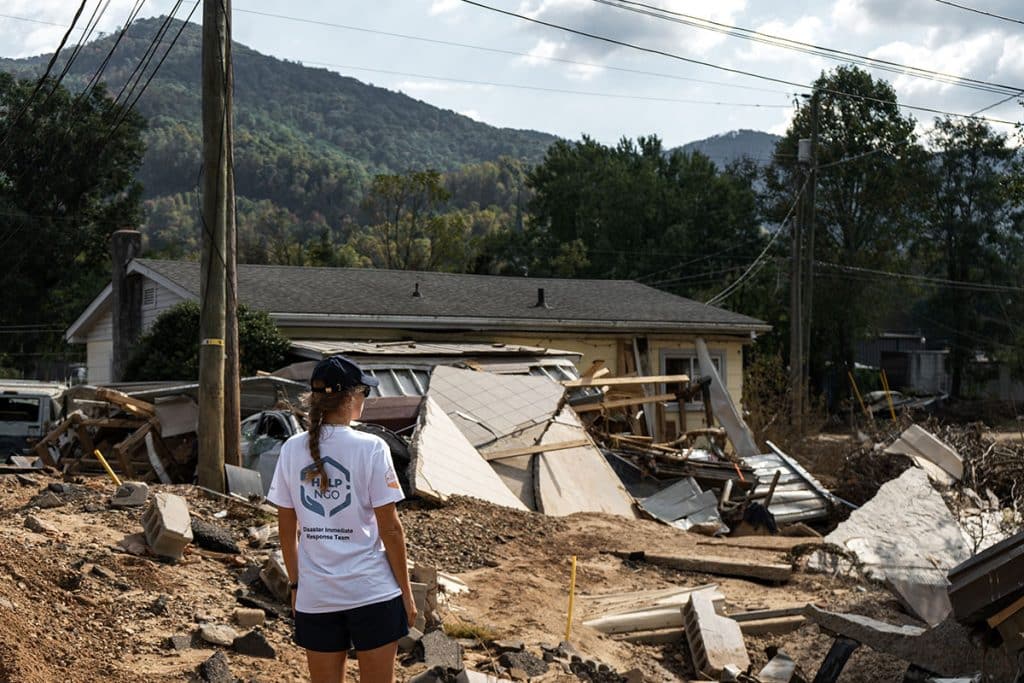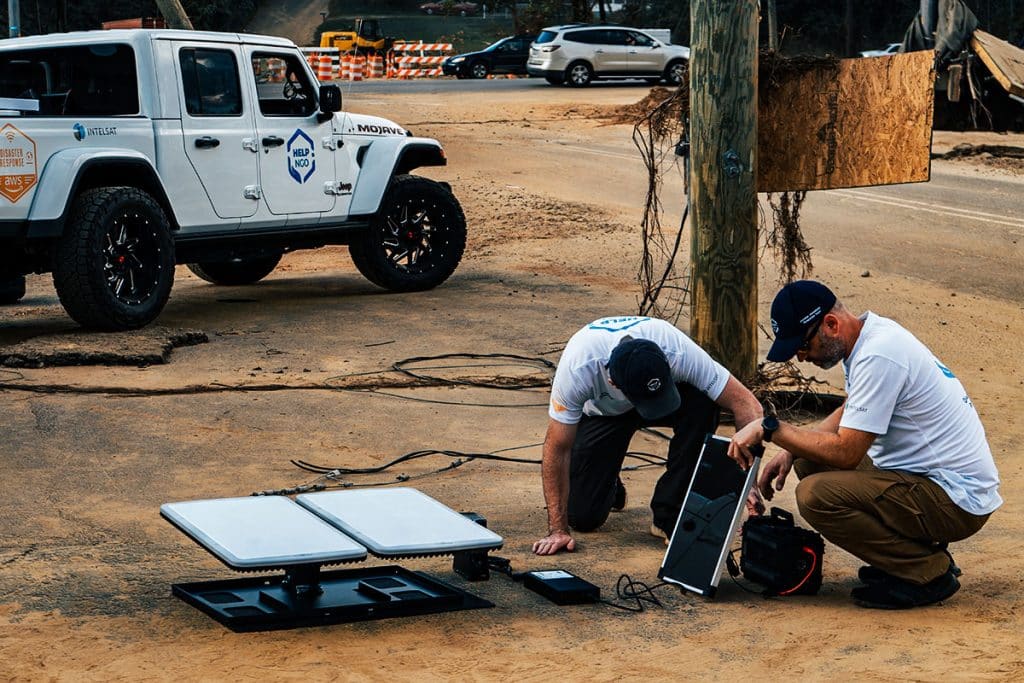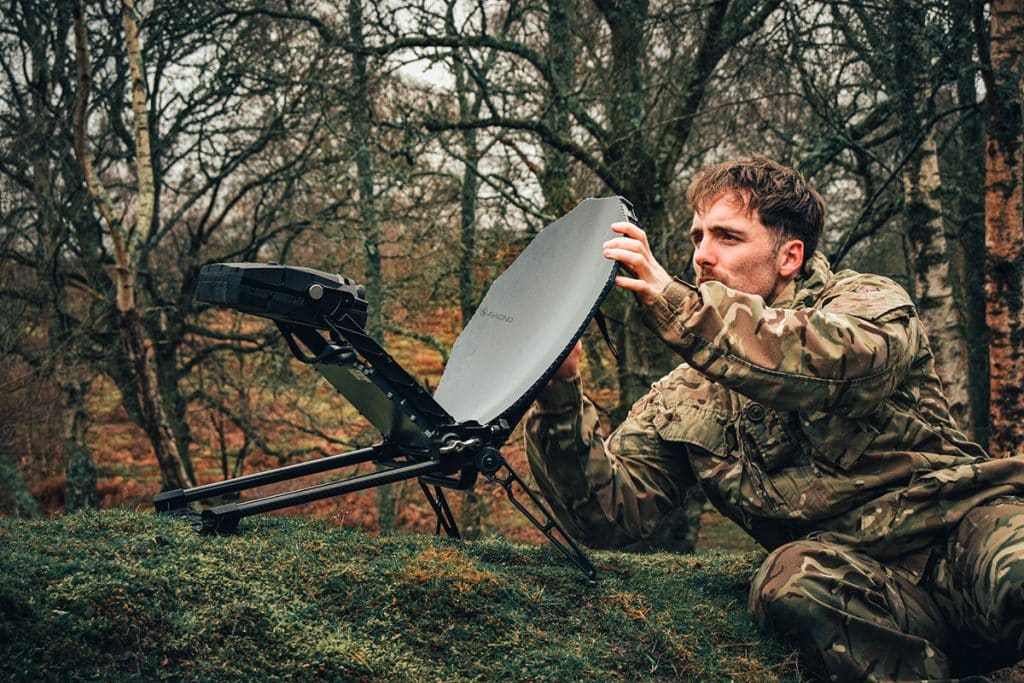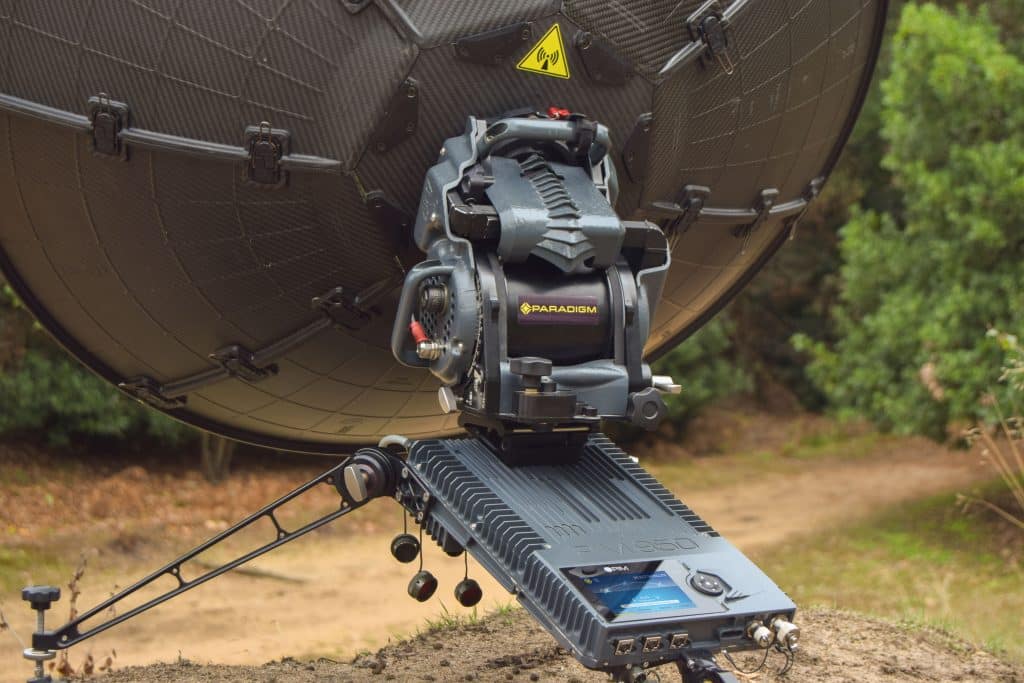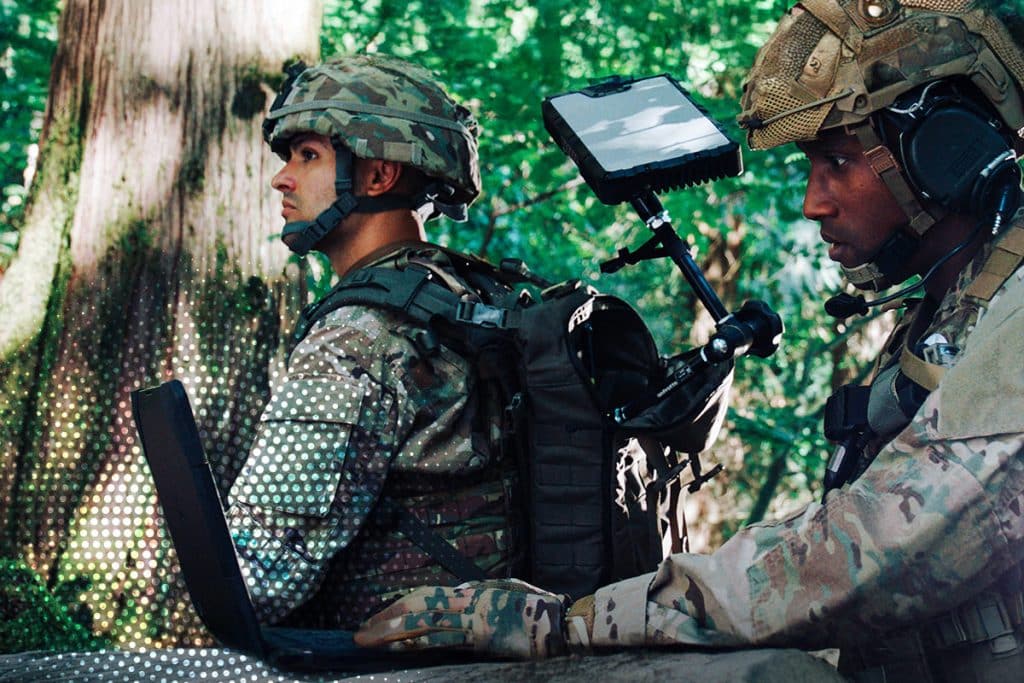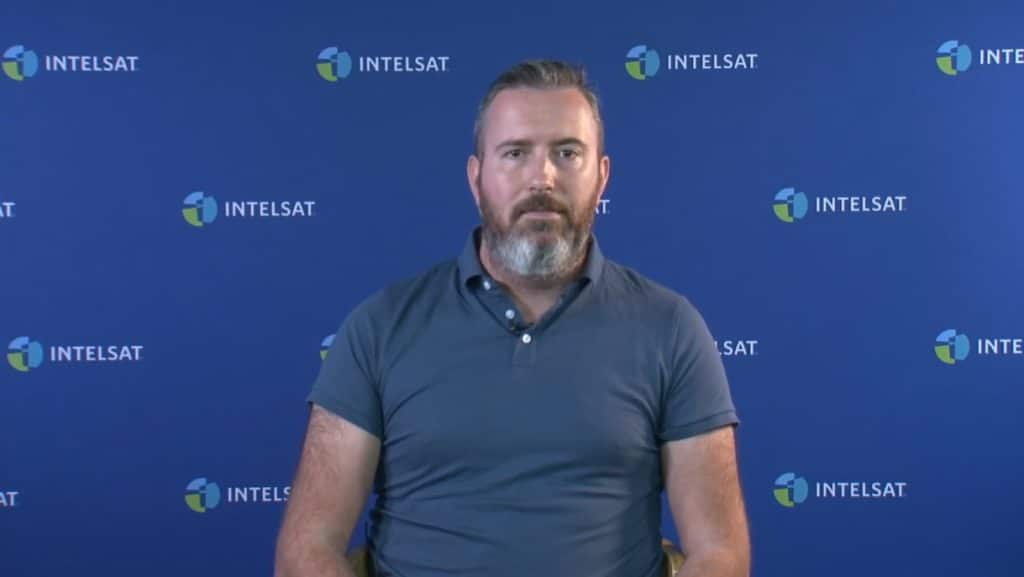Satcom Innovation that Continues to Deliver for Mission-critical Emergency Response
At Intelsat General, we continue to innovate solutions tailored to our customers’ evolving needs, particularly those performing mission-critical work on the front lines of emergency response, humanitarian aid and combat operations. In fact, our engineers and technical experts have spent decades supporting our customers’ disaster-recovery missions and reconnecting areas devastated by natural disasters and human conflict.
Today, we’re leveraging that unparalleled expertise and our ongoing investments in software-defined and simplified, user-friendly mobility solutions to continue pushing the boundaries of what’s possible, helping our customers stay at the cutting edge of emergency response and communications.
Emergency and first responders often work in remote areas far from communications infrastructure, or where terrestrial infrastructure, like cell towers and fiber cable, has been destroyed or disrupted. That’s why satellite communications (satcom) solutions and resilient integrated land-space networks, like those offered by Intelsat General, have become such a critically important component of federal, state and local emergency response efforts.
During an unexpected disaster, mobile and portable satcom field equipment can provide immediate communications capabilities, allowing rescue personnel to quickly assess a situation, call-in the right support resources, triage the hurt or injured with telemedical care and quickly restore order. As a situation evolves, portable, solar-powered satellite-linked command centers can be quickly assembled to oversee food, water and shelter provisioning, protect public safety and ensure continuity of operations for recovery teams.
Intelsat General technical experts staffing our 24/7 network operations and support centers are prepared to respond to our customers’ emergency communication needs anywhere in the world in a matter of mere hours. We’re always at the ready to build short-term networks for voice, video and data that can open lines of communication, speed recovery and support public safety, among other key objectives.
The need for this type of emergency satcom service is only growing more pronounced. The National Oceanic and Atmospheric Administration (NOAA) estimates that the U.S. has sustained 265 weather and climate disasters since 1980 where overall damages and costs reached or exceeded $1 billion; the total cost of these 265 events exceeded $1.775 trillion. NOAA also estimates that on average, 6.6 such costly disaster events occurred per year from 1980 to 2019; however, that annual average has spiked to 13.8 events during the 2015 to 2019 timeframe.
At Intelsat General, we’re acutely aware of this growing need and constantly collaborating with customers, government partners and intergovernmental organization to develop and demonstrate cost-effective emergency satcom solutions that have resiliency and global reach. Our managed satcom services leverage Intelsat’s integrated global satellite and terrestrial network, which covers 99 percent of the world’s populated areas and is comprised of more than 50 satellites, including the only global high-throughput Ku-band satellite fleet in operation.
When our customers told us they needed a more advanced and affordable solution for front-line personnel working in remote areas — one that goes beyond the capabilities of the traditional push-to-talk radios or low-bandwidth satellite communications solutions currently on the market — we jumped into action.
Radio has its obvious geographic and voice-only limitations, however high-bandwidth satellite services can provide connections to the public switched telephone network (PSTN) as well as the internet, and can carry voice, data, and video traffic.
Our newest solution, Intelsat FlexMove for Government Communications-On-The-Move (COTM), enables everyone from forward-deployed military personnel and local first responders to border patrol agents and humanitarian aid workers to quickly, easily and securely access and share information while in a moving vehicle. And, they can reliably connect while travelling through some of the world’s most remote regions, and in places where communications infrastructure is either nonexistent or completely destroyed.
FlexMove for Government COTM is the third service offering in our highly popular FlexMove for Government managed services platform, which also includes FlexMove for Government Communications-On-The-Pause (COTP) for portable, temporary satcom applications and the grab-and-go FlexMove for Government Manpack.
By leveraging the strength of our award-winning Intelsat Epic high-throughput satellite fleet, we’re able to deliver the high-speed broadband mobile connectivity our customers need for a host of applications, including converged voice, data and video. We’re collaborating with terminal providers, such as CopaSAT, GetSat, Kymeta and Paradigm to offer compact vehicle-mount antennas that can be easily deployed and connected to our network, even by non-technical operators.
With speeds up to 5 Mbps download and 2 Mbps upload Maximum Information Rate (MIR), FlexMove for Government COTM enables the transmission of high-definition, full-motion video using small antennas – all while users are on the move. And with fixed mothly gigabyte and shared plans, plus a flexible, pay-as-you go model, we’re making it cost-effective for customers to utilize FlexMove for Government COTM for both occasional first-responder missions and enduring or long-term operations. Anti-jamming capabilities, combined with multiple layers of resiliency, ensure secure communications and seamless connectivity.
At Intelsat, we continue to lead the industry by pushing boundaries and innovating creative and powerful solutions that meet our customers’ needs for today and beyond. Ready to upgrade your satcom capabilities to ensure your prepared for the next emergency? Contact us, we’re ready to help.
To learn more about the FlexMove for Government platform, click here
This post initially appeared in Government Technology on July 1, 2020.





